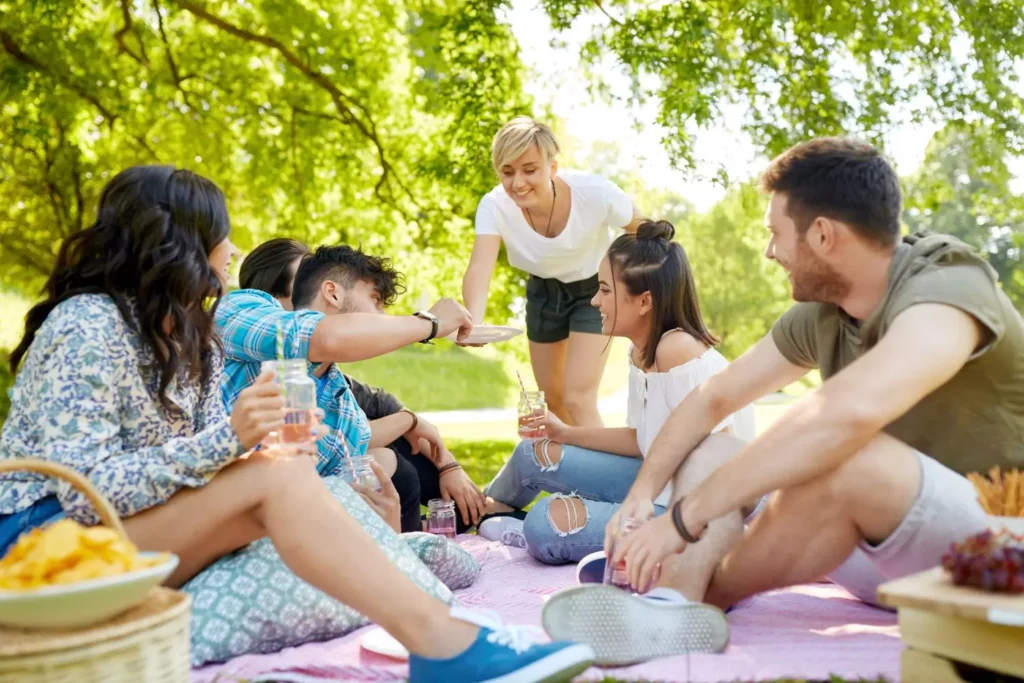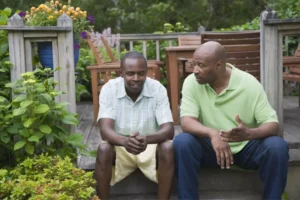For the past few years, I have lived apart from my biological family. Like other Christian twenty-somethings who have moved away from home, I have turned to other believers for my main community and a sense of connection. I’ve spent holidays nestled into someone else’s family, babysat kids I’m not related to and relied on friends from Bible study when I got a flat tire.
I work for a Christian ministry with a relational environment, which makes it easy to form these kinds of interdependent relationships at work. I’ve discovered, however, that creating those same connections in the church isn’t always as easy. Making plans with those you meet in the pews can feel awkward — asking for help, even more so.
We singles often hear, “God can meet all your needs.” That may be true, but when spoken in the context of loneliness or crisis, it can feel cheap and trite. The underlying assumption, of course, is that married people have a spouse to meet their physical and emotional needs and singles do not.
The phrase can actually just be spiritual jargon that lets the church — as in the members of Christ’s body — off the hook from some of its basic duties. God can meet all of our needs, but He has instructed each of us to be committed to meeting the needs of other believers.
And this goes deeper than brief conversations in church hallways. During His earthly ministry, Jesus often referred to His disciples and other followers not as acquaintances or even friends, but as family. In one particularly shocking scene, recounted in Mark 3:31-35, Jesus makes the seriousness of this family connection very clear.
And his mother and his brothers came, and standing outside they sent to him and called him. And a crowd was sitting around him, and they said to him, “Your mother and your brothers are outside, seeking you.” And he answered them, “Who are my mother and my brothers?” And looking about at those who sat around him, he said, “Here are my mother and my brothers! For whoever does the will of God, he is my brother and sister and mother.”
One way to gain a better understanding of what Jesus meant by declarations like these is to look at the early church. Here, the culture of collectivism reigned, meaning those who lived in that time valued the needs of the group over the needs of the individual. This is quite opposite from the individualism seen in western culture. Individualism isn’t inherently bad, but if we want to understand Scripture in the way the writers intended, a basic grasp of the culture of the time is helpful.
In his book “When the Church Was a Family,” Joseph H. Hellerman explains how the concept of collectivism can feel foreign to us.
“As church-going Americans, we have been socialized to believe that our individual fulfillment and our personal relationship with God are more important than any connection we might have with our fellow human beings.”
In other words, we view the church’s primary function as helping us grow closer to God; the relationships we form through church are secondary. In reality, God reveals himself to us through these relationships. Each person is made in the image of God, and we see His likeness through one another.
Practicing Dependence
In the early church, a person didn’t make major life decisions alone. Rather, decisions about where she would live, what career he would have or who she would marry, were made by the family. It’s no coincidence that Jesus and the New Testament writers use family language to describe the bond believers should share.
This kind of relationship is built on trust and friendship. Christopher Heuertz, in his book “Unexpected Gifts: Discovering the Way of Community,” says:
“Friendship is the basis of community. If we don’t have the gift of friendship in weaving our lives together, our communities are simply experimental spaces set up to fail or to lead to deep resentments.”
Although this concept seems obvious, sometimes in the church we can forget this step. When someone becomes a believer, he gains a new family, but just like any relationship, these new bonds require intentionality and effort to blossom into love that is familial in nature.
Even when we are intentional in forging relationships in the church, we often do this only with people who look like us or are in a similar life stage. We can choose the church and small groups we attend, but we can’t choose our universal (and eternal) biblical family.
Our Christian brothers and sisters reach across denominational, socioeconomic, racial and national lines. The first century church consisted of people from a variety of backgrounds, including both Jews and Gentiles, two groups who did not initially get along. These early Christians also elevated the status of many marginalized people. As these groups ate and shared their lives together, they were a testament to onlookers of what a new creation in Christ could look like. Our church communities should reflect this same value of inclusion.
Family First
Because my life stage leads me to connect better with singles, I’ve had to put forth more effort to develop friendships with those who are married or have kids. For example, those with young children or those who are elderly can’t easily come over for dinner, so I will make a large batch of soup and take it to their house. And I have been delighted when those in my church scoot another chair up to their dinner tables for me.
As you look for opportunities to build familial relationships with those in your church, try to think of those outside your well-worn group of friends. Who would enjoy being invited to your next party or social event? What are you already doing (such as training for a 10K or reading in a coffee shop) that you could invite someone to do with you? Shared activities can create a foundation for friendship and deeper life impact.
If your church is not racially or socioeconomically diverse, consider joining a small group in a church that is. These practices aren’t about becoming instant best friends with every Christian, but rather reorienting our lives in small ways that better reflect church the way God intended.
I have spent the past few years working with Afghan refugees. Something I have observed is how their collectivist culture seems to resemble that of the first-century church (according to Acts). While I spend a lot of time with them, it isn’t until they meet one of my family members that they feel like they truly know me. Through knowing a part of my family, they gain context for who I am. From there, our relationship inevitably goes a layer deeper.
I think this is similar to how God works through His family— the church. He reveals himself to us through the Scripture, but He also provides fellow believers to connect with deeply in order to know Him more fully.
The blood of Christ commits us to God and to one another, not only now but for eternity. Jesus calling us family is an honor we should strive to live up to.
Copyright 2017 by Lindsey Boulais. All rights reserved.











